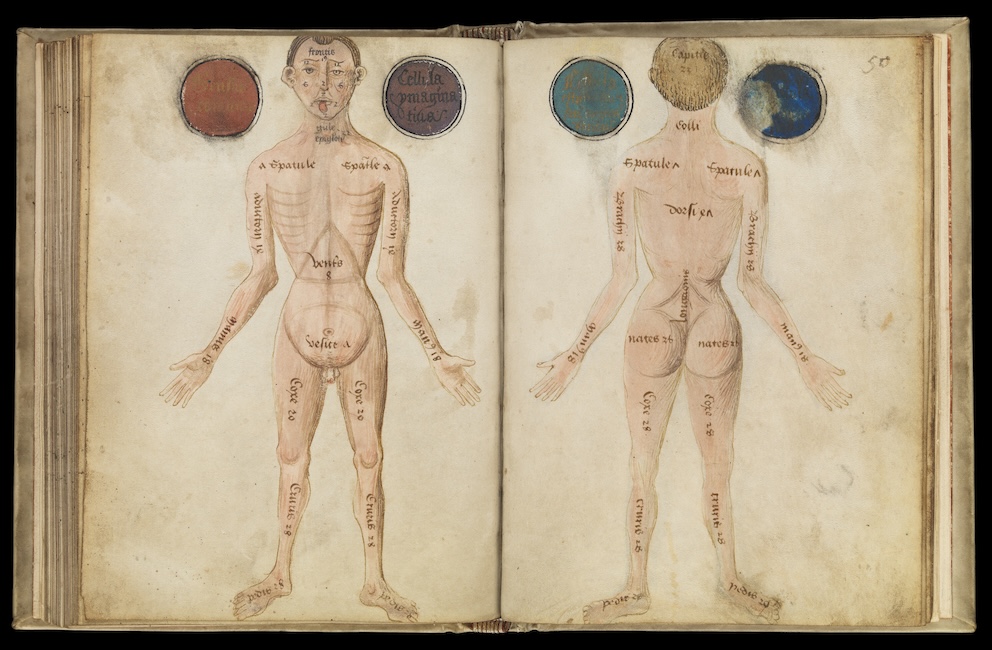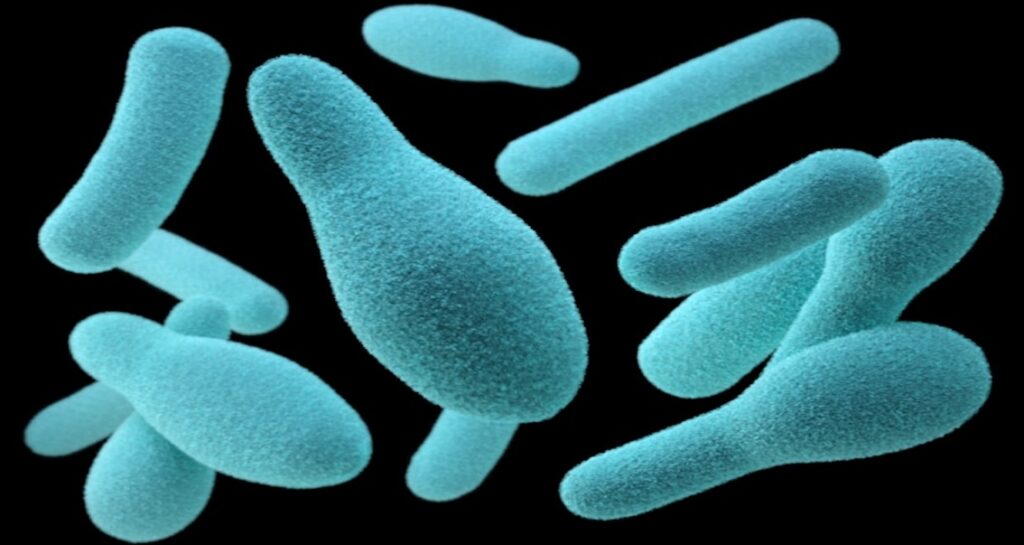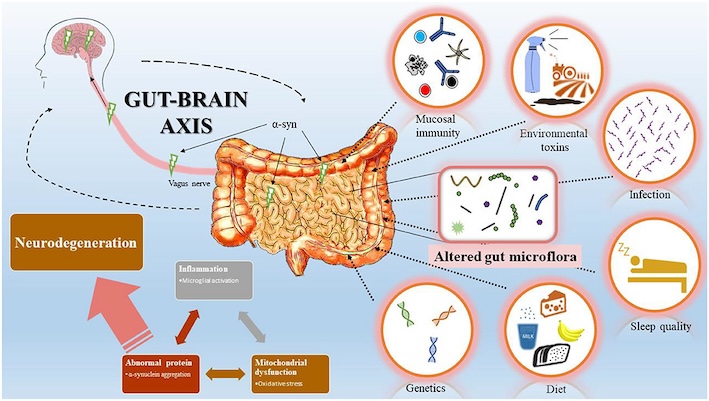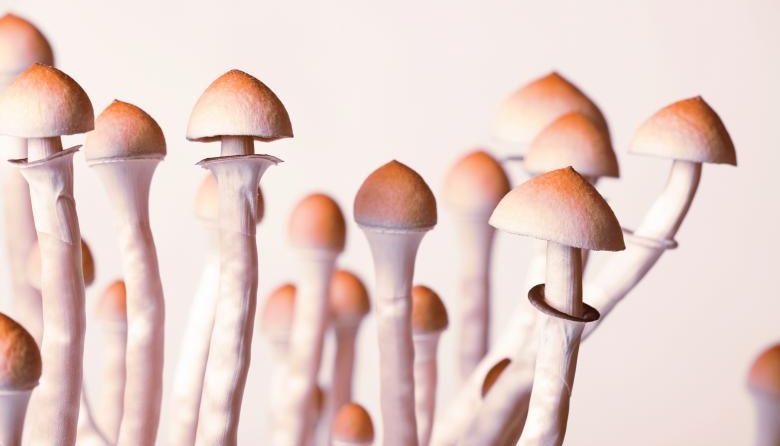Ever had a “gut feeling”, or been told to “trust your gut”? These phrases speak of intuition, of knowing our bodies, and following our instincts. In the distant past, some philosophers and scientists considered the gut to be a mediator between the spiritual and physical realms.
Antiquated this may sound, but today the gut microbiome is a flourishing and exciting new area of research, with evidence showing the stomach may be far more important than we give it credit for. A ‘second brain’, if you will!

What is the Link Between Psychedelics and the Gut Microbiome?
With so much research currently underway into the effects of psychedelics on the brain, it’s kind of a no-brainer itself, that scientists are starting to wonder what influence they may have on the mysterious gut microbiome — whose links to both physical and mental health are only just starting to be understood.
You see, your guts aren’t just a jumble of squelching, gurgling, farting tubes, you know. The gut is an entire ecosystem chugging away within our bodies. Our gut microbiome consists of billions of bacteria and fungi that are constantly interacting: they live, they die, they feed off each other. These interactions produce biochemical products that can affect all parts of the body.
Psychedelics and the gut have more things in common than you might think. They both share a link to mental and physical health. And they are both deeply complex, multi-layered systems with almost endless variables.
Infinitely Variable Interactions
The factors that affect our gut health reach far beyond food. They include our age, how and where we grew up, where we live now, our ethnicity, habits such as smoking or drug taking, and other developmental factors. Combine this with the dizzying array of microbes in the gut and you have an innumerable amount of outcomes.
Psychedelics are similar in that they also have many, many moving parts. It’s not just about which substance, and what dávkování. It’s also about nastavit a nastavit, personal and cultural belief systems, expectations, and fears.
Consider then, the infinitely variable interactions that could occur when one introduces psilocybin to the gut.

Serotonin is a Key Player
Psilocybin’s ability to bind to, and mimic the effects of serotonin is one of the mechanisms that causes psychedelic experiences, as well as many of the associated mental-health benefits. But did you know that just 10% of the body’s serotonin receptors are in the brain? The other 90% are found in the gastrointestinal tract. So actually, our ‘gut feelings’ truly do affect our mood! And, as some researchers suspect, our psychedelic experience.
In 2019, Dr. Kim Kuypers of Maastricht University published a paper that looked at the relationship between psychedelics and the gut microbiome. In the paper 'Psychedelic medicine: The biology underlying the persisting psychedelic effects’, Kyper searched for reasons as to why psychedelic effects can last so long after the actual trip (the ‘afterglow’ effect). She suggested this could be because of the colony of little beings that exist in our belly.
Gut Health is Linked to Depression
In the paper, Kuyper also explains that psychedelics are “a relatively new theme for researchers, and they are focused on the acute or longer-term effects at a psychological/cognitive level.” She notes that current research predominantly focuses on the biological effects, utilizing new tools like brain imaging, however she adds, “more people are zooming out now, I guess, after learning about the effects, now interested in deciphering the origin of persisting effects.”
Recently, a whole field of research into how the gut might be linked to depression has opened up. For example, some studie have found that symptoms of Irritable Bowel Syndrome improve when treated with SSRIs, showing a clear communication between the gut and the brain.

While it’s an incredibly complex and not-well understood subject, there are some researchers beginning to tackle the gut-brain-psychedelics connection. And, Dr. John Kelly of Trinity College in Ireland has stepped up to do just that, coining the intriguing new term ‘psilocybiome’.
What is the ‘Psilocybiome’?
In his paper, Seeking the Psilocybiome: Psychedelics meet the microbiota-gut-brain axis, Dr. Kelly begins to explore the complexities of the gut microbiome, and the potential outcomes when adding psychedelics to the mix. He defines “psilocybiome” as a concept that explores “reciprocal host-microbiota-psychedelic interactions” and also “serves as an example of systems interconnectivity.”
Fascinatingly, Dr. Kelly suggests that interventions into the gut microbiome could be used as preparation for, and integration of, psychedelic experiences. A way of tailoring or influencing psychedelic journeys in a certain direction.
“We are comprised of a complex composite of interacting systems, which operate within the wider environmental system/ecosystem.” Dr. Kelly explains, “The gut microbiome at the interface between the self and the environment is one such bio-feedback system that could be harnessed over the course of psychedelic therapy to help re-calibrate the individual system into a healthier homeostatic state.”
It is notable that Dr. Kelly’s proposal closely echoes the idea the ancients had — of the gut being a mediator between the spiritual and the physical — though in this case it is the “self” a “environment”.
Psychedelics, the Microbiome, & the Immune System
Another significant link between psychedelics and the gut microbiome is the immune system. Imbalances in the immune system, including autoimmune disorders, have been connected to the function of the microbiome. Similarly, psychedelics have more recently been studied for their various effects on immune function, even as a potential treatment for autoimmune disorders. Both the microbiome and psychedelics have been linked to the stimulation of microglia cells involved in the immune response, along with lots of other biomarkers and possible signalling pathways.
In his paper, Dr. Kelly ponders how intervening in a person’s microbiome could further influence the immune responses triggered by psychedelics. He suggests that these interactions would not only have therapeutic and healing benefits, but could also help us to further understand the mechanisms of psychedelics.

So How Does This Apply To Vaše Life?
So how can you incorporate this understanding of the psychedelic-microbiome link into your life?
As Dr. Kuypers sees it, actions like improving or changing your diet are “a first line ‘therapy’; including other lifestyle changes: getting rid of the toxic, stressful influences in people’s lives, and doing regular exercises known to affect mood, serotonin, neuroplasticity.”
‘Health’ as we understand it, needs a many layered approach. Dr. Kuypers echoes a growing sentiment of those who have already incorporated psychedelics into their wellness routine, when she adds; “psychedelics will be part of a lifestyle adjustment; part of a holistic therapeutic approach.”

While there is still a lot that is unknown, we can be sure that by nourishing our bodies with food that promotes good health, using mindfulness tools such as meditation, exercising to release endorphins, and adding a psilocybin microdosing regime to our routine, we can start to, ourselves, find the balance of holistic wellness we seek.





